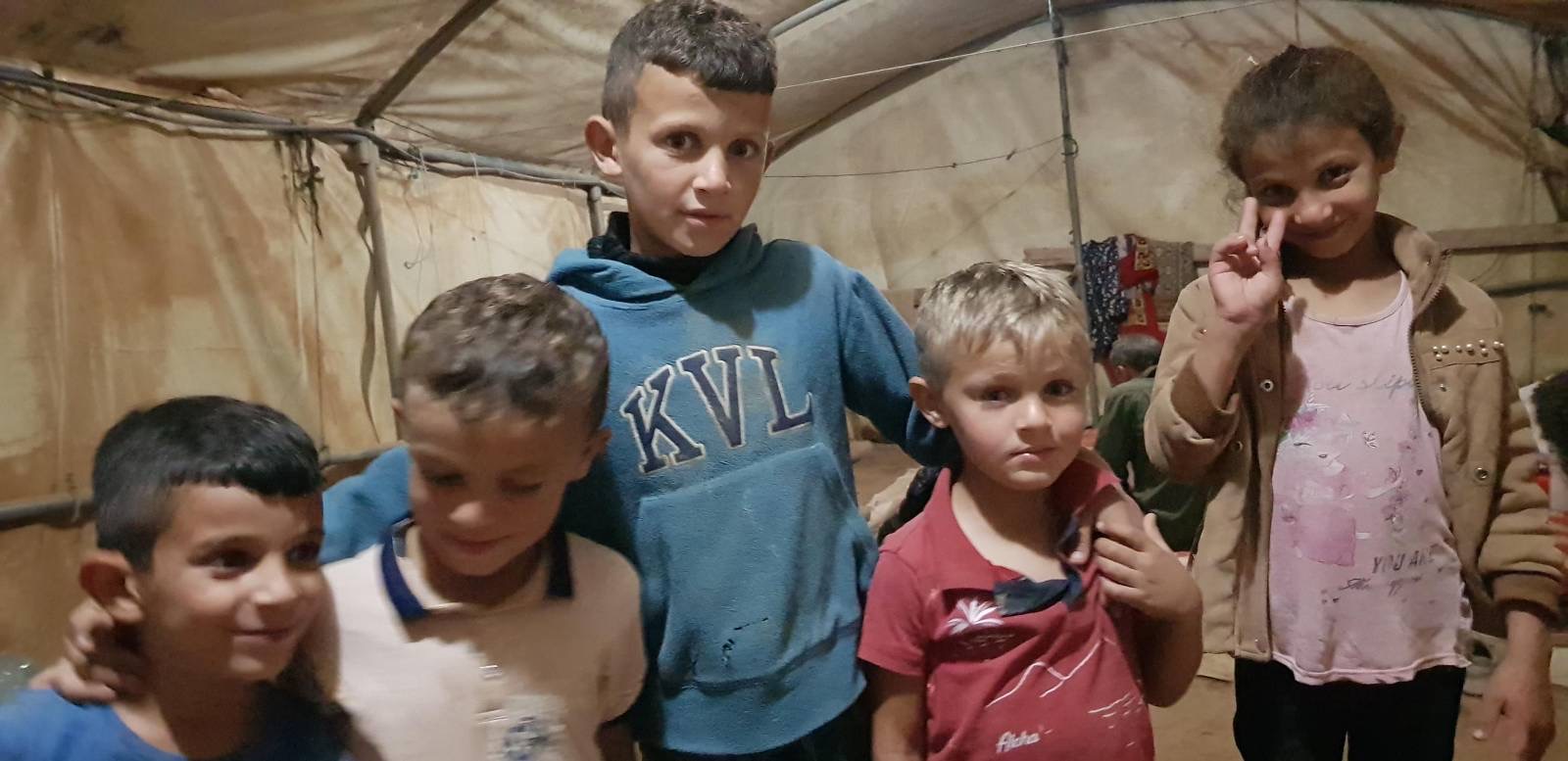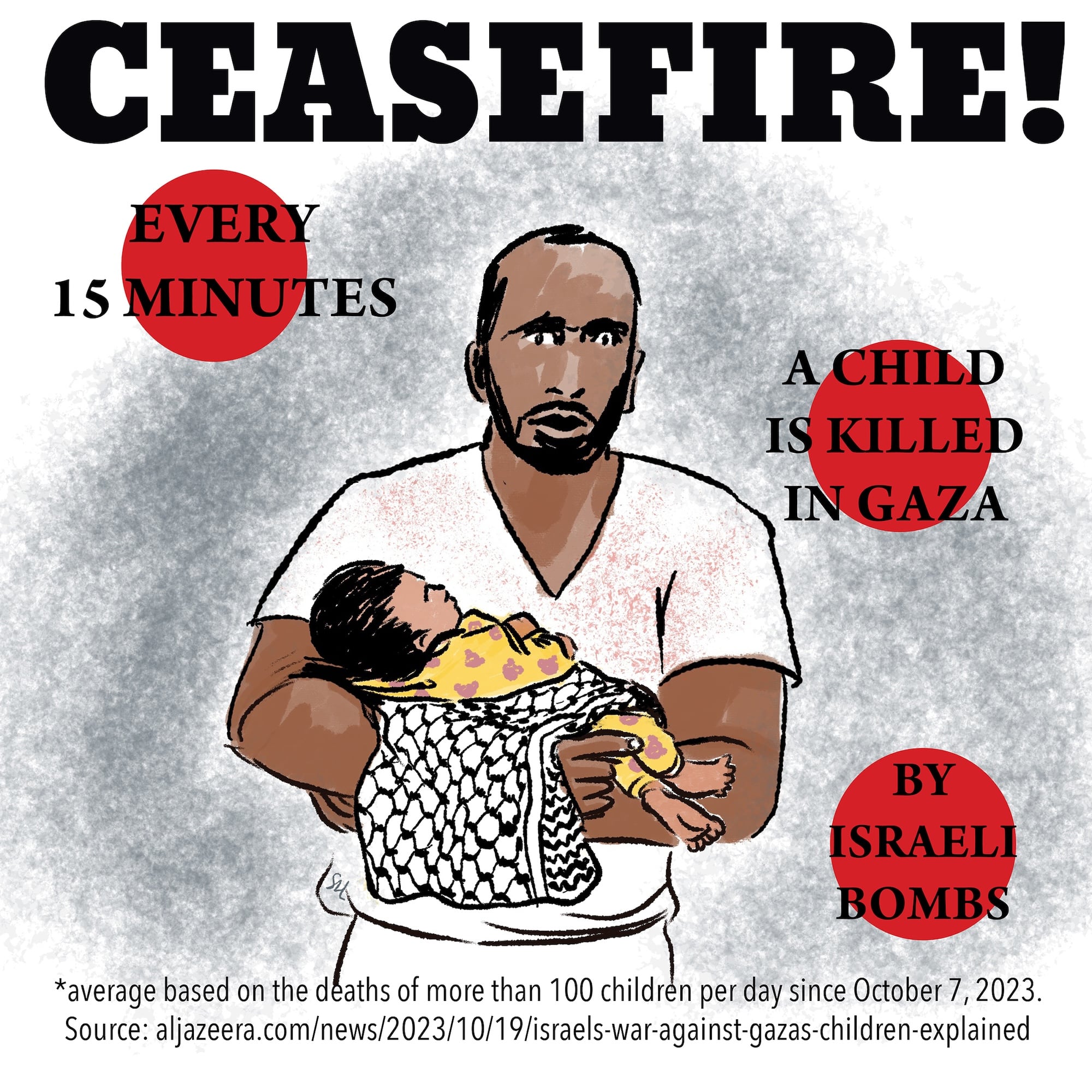
I am still perpetually on the verge of crying or crying most of the time. Throughout my travels in Palestine, I have learned from the wisdom of children. Children everywhere know when they are very young that their tears are not something to repress, but rather their crying out helps bring about what they are needing.
Where my Arabic and their English are inadequate to be able to communicate, playing together is a way to speak a deeper language of companionship and encounter. Our smiles and laughter together is a defiant blossoming of life surrounded by the threat of life’s extinction.
Last week a young child kissed my hand and put it to their head. I didn’t know the most appropriate way to respond.
But forty miles away, a new acronym has had to be created for children just like her, WCNSF, wounded child, no surviving family. Everything I do, even if I stay up through the night to keep watch so a family can sleep more soundly, still feels so inadequate in the midst of such catastrophe.
More than 10,000 children have been killed in Gaza in these last 100 days. Surrounding Gaza there is a fence, and armed guards ready to shoot anybody who comes near it, keeping them from coming to me and me from going to them. UNICEF warns “All children under five in the Gaza Strip—335,000—are at high risk of severe malnutrition and preventable death as the risk of famine conditions continues to increase. UNICEF estimates that in the coming weeks, at least 10,000 children under five years will suffer the most life-threatening form of malnutrition, known as severe wasting, and will need therapeutic foods.”

In Florida, where I am from, when a hurricane hit and I knew of children suffering from dehydration, I could empty every pharmacy in my vicinity of pedialyte and drive it to them in a matter of hours. But there is an army, supported and financed by my government and tax dollars, keeping me from doing the same for these children.
I learned a new Arabic phrase since I’ve been here and have used it often. People in Palestine are so heartbreakingly welcoming. There is rarely a “hello (marhaba)” in Arabic, just “welcome and welcome again” (ahlan wa sahlan). The implied longer meaning, that ahlan wa sahlan is a shortened version of, communicates: “You left your own people, but you are among family, and you are safe here.” But when a Palestinian asks me where I am from, I always tell the truth. “I am from America (Ana min Amrika).” I have seen people shake with the deepest hurt and speak about what the United States of America has done to their family. And saying “I am sorry (assif)” in Arabic is much too little. To me, it implies that I am expecting Palestinians’ understanding, forgiveness, or ablution. I am not. So I have learned to say “I seek forgiveness from God (astaghfirullah)” as the second part of responding about where I am from.
Dietrich Bonhoeffer, who was put in a concentration camp during the holocaust and later hanged by the Nazis, warned, “Silence in the face of evil is evil itself: God will not hold us guiltless. Not to speak is to speak. Not to act is to act.”
Amid such horrors and one’s inability to stop them, I think I understand how to be imprisoned, to be beaten, to be killed even, would be a balm for one’s soul, knowing that others weren’t suffering alone, and when people were thrown into a furnace, there was another in the fire.
I have 109 prayer beads on my wrist. This about matches the amount of children killed each day in Gaza. What I have done and am doing has not been enough for 10,000 children. And 10,000 more. I don’t know what will be enough. But I will seek it.

